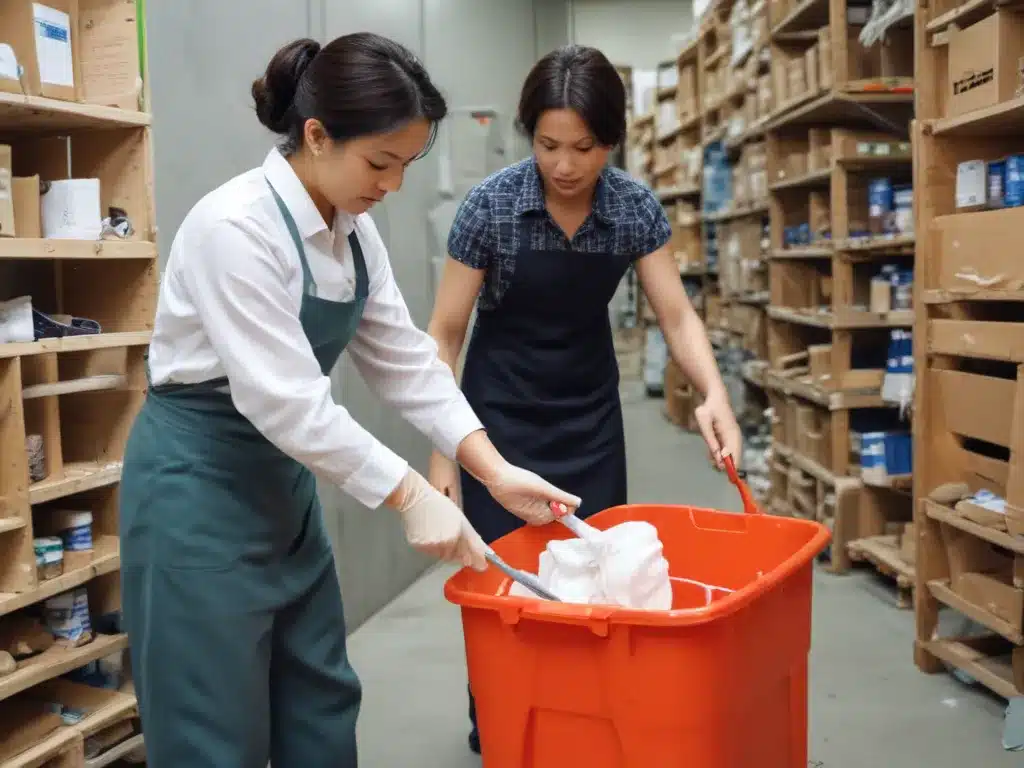Introduction
Cleaning customs and practices have been deeply ingrained in various cultures around the world for centuries. These traditions often reflect the values, beliefs, and lifestyles of different societies. As globalization has brought people from different cultural backgrounds closer together, there has been an exchange and blending of cleaning customs, creating a unique melting pot of practices. In this article, I will explore how Eastern and Western cleaning customs have influenced and shaped each other, resulting in a harmonious fusion of techniques and philosophies.
Eastern Cleaning Customs
Minimalism and Decluttering
Eastern cultures, particularly those influenced by Buddhism and Taoism, have long emphasized the concept of minimalism and decluttering. The Japanese art of decluttering, known as “Marie Kondo,” has gained global popularity in recent years. This approach focuses on keeping only the items that “spark joy” and letting go of possessions that no longer serve a purpose. The decluttering process is believed to create a more peaceful and organized living environment, which in turn facilitates easier cleaning and maintenance.
Zen Cleaning
The Japanese concept of “Zen Cleaning” is rooted in the principles of mindfulness and presence. It involves approaching cleaning tasks with a sense of calmness, focus, and appreciation for the present moment. This practice encourages individuals to engage in cleaning activities with a clear mind, allowing them to find joy and fulfillment in the process itself rather than solely focusing on the end result.
Traditional Cleaning Methods
Many Eastern cultures have developed traditional cleaning methods that have been passed down through generations. For example, the use of natural ingredients like vinegar, baking soda, and citrus fruits for cleaning purposes is common in Asian households. Additionally, the practice of using bamboo brooms and cloth rags instead of synthetic materials aligns with the Eastern emphasis on sustainability and harmony with nature.
Western Cleaning Customs
Efficiency and Convenience
In Western cultures, cleaning customs have often been shaped by the desire for efficiency and convenience. The development of modern cleaning products, such as chemical-based detergents and specialized tools, has aimed to make cleaning tasks faster and more effective. This focus on time-saving and convenience has been driven by the fast-paced lifestyles and busy schedules prevalent in many Western societies.
Emphasis on Hygiene and Disinfection
Western cleaning customs have traditionally placed a strong emphasis on hygiene and disinfection. The use of antibacterial cleaning products and rigorous sanitization practices has been widely adopted to combat the spread of germs and maintain a clean living environment. This approach stems from a deeper understanding of microbiology and the potential health risks associated with poor hygiene.
Outsourcing and Professional Cleaning Services
In Western societies, it has become increasingly common to outsource cleaning tasks to professional cleaning services. This trend is driven by a combination of factors, including busy work schedules, a desire for convenience, and the availability of affordable cleaning services. Professional cleaning companies often employ advanced techniques and specialized equipment to achieve thorough and efficient cleaning results.
Blending Cultural Cleaning Customs
As people from diverse cultural backgrounds interact and share their experiences, a fusion of cleaning customs has emerged. Here are some examples of how Eastern and Western cleaning traditions have influenced each other:
Eco-Friendly and Natural Cleaning Products
The Western emphasis on convenience and efficiency has been tempered by the growing popularity of eco-friendly and natural cleaning products. Influenced by Eastern traditions of using natural ingredients and minimizing environmental impact, many Western households and businesses have embraced the use of plant-based, biodegradable, and non-toxic cleaning solutions.
Mindful Cleaning Practices
The concept of mindful cleaning, inspired by Eastern philosophies like Zen, has gained traction in Western societies. Individuals are increasingly recognizing the mental and emotional benefits of approaching cleaning tasks with a sense of presence and appreciation, rather than viewing them as mere chores to be rushed through.
Decluttering and Minimalism
The Marie Kondo decluttering method, originating from Japan, has become a global phenomenon, influencing Western attitudes towards possessions and organization. Many Western households have adopted the practice of regularly decluttering and embracing a more minimalistic lifestyle, which in turn simplifies the cleaning process.
Fusion of Traditional and Modern Techniques
In both Eastern and Western contexts, there has been a trend towards combining traditional cleaning methods with modern technologies and innovations. For example, using natural ingredients like vinegar and baking soda in conjunction with advanced cleaning tools and appliances, or incorporating mindful practices into the use of efficient cleaning products.
Conclusion
The blending of Eastern and Western cleaning customs has created a rich tapestry of practices that celebrate diversity while promoting sustainability, efficiency, and mindfulness. As cultures continue to interact and exchange ideas, it is likely that this fusion will continue to evolve, leading to the development of new and innovative cleaning approaches that draw from the best of both worlds. By embracing an open-minded and inclusive perspective, we can harness the wisdom of various cultural traditions to create cleaner, more harmonious living environments for generations to come.







